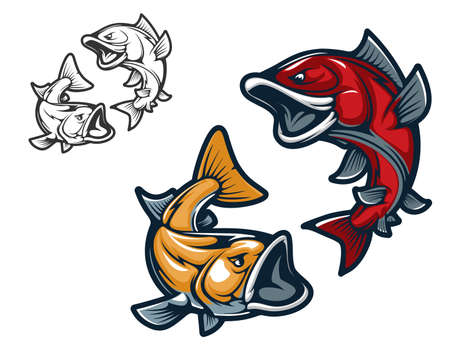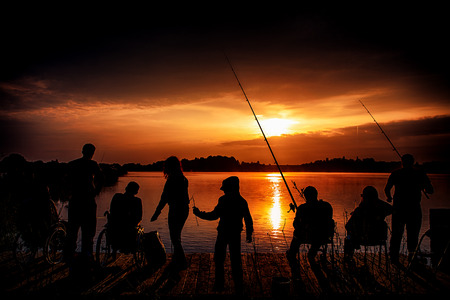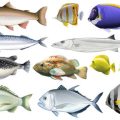Introduction: The Growing Interest in Youth Angling
In recent years, there has been a notable resurgence in angling among British youth, rekindling an age-old tradition that holds a special place in the UK’s cultural tapestry. Fishing, once considered the pastime of older generations or rural communities, is now being embraced by young people from all walks of life. This renewed enthusiasm is not just about casting a line; it reflects a broader appreciation for nature, mindfulness, and community—values deeply rooted in British heritage.
Historically, angling has played a significant role in shaping local customs and fostering social bonds across generations. From the tranquil banks of the Lake District to the bustling canals of London, fishing has long offered Britons an escape from urban life and a chance to connect with the natural world. Today, this connection is being revitalised through collaborative efforts between schools and angling clubs, aiming to introduce young people to the joys and responsibilities of fishing.
The cultural significance of angling in the UK extends beyond recreation. It teaches patience, environmental stewardship, and respect for tradition—qualities that resonate strongly within British society. With growing concerns over screen time and indoor lifestyles, angling presents an opportunity for young people to rediscover outdoor pursuits while building practical skills and lasting friendships.
| Aspect | Cultural Significance |
|---|---|
| Heritage | Rooted in centuries-old British customs |
| Community | Brings together diverse age groups and backgrounds |
| Education | Encourages environmental awareness and responsibility |
This article will explore how partnerships between British schools and angling clubs are playing a pivotal role in encouraging youth participation, ensuring that this cherished tradition continues to thrive for generations to come.
2. The Role of British Schools in Outdoor Education
British schools have long championed the value of outdoor education, recognising that learning beyond the classroom develops a broader set of skills and attributes among pupils. Angling, though perhaps not as mainstream as football or rugby, has carved out a meaningful place within the school curriculum for many institutions across the UK. By working closely with local angling clubs, schools are able to offer structured fishing sessions as part of their physical education (PE) programmes or extracurricular activities. This collaboration opens up opportunities for students who might not otherwise engage with traditional sports, fostering both inclusivity and personal development.
Incorporating angling into the curriculum is far more than simply teaching children how to fish. It’s about integrating practical, hands-on experiences that reinforce concepts from science, geography, and even mathematics. For example, pupils learn about ecosystems and water cycles while observing local rivers and lakes, or develop patience and focus through the discipline required in fishing. The table below illustrates some key educational benefits associated with angling in schools:
Educational Aspect |
Practical Application Through Angling |
|---|---|
Science & Environment |
Understanding aquatic habitats, fish species, conservation efforts |
Mathematics |
Measuring catches, calculating weights and distances |
Personal Development |
Building patience, resilience, teamwork, and social skills |
Physical Activity |
Encouraging movement outdoors and basic motor skills development |
Moreover, these real-world lessons often resonate more deeply with students compared to textbook learning alone. Teachers frequently report increased engagement when lessons are contextualised through activities like angling. In turn, this approach supports both academic achievement and wellbeing—an outcome well-aligned with the holistic educational ethos prevalent in British schools.

3. Angling Clubs as Community Hubs for Young People
Angling clubs across the UK play a vital role in nurturing the next generation of anglers by serving as inclusive community hubs for young people. These organisations offer much more than just access to local rivers, lakes, and ponds—they provide a structured environment where children and teenagers can learn essential life skills under the guidance of experienced mentors. The relationship between schools and angling clubs ensures that youngsters have safe, supervised opportunities to engage with nature while developing confidence and resilience.
The Role of Mentorship in Youth Angling
Mentorship is at the heart of every successful angling club. Seasoned anglers volunteer their time to support young members, offering both technical instruction and personal encouragement. This one-to-one or small group support helps youngsters build trust, respect, and a sense of belonging within their community. For many, their local angling club becomes a place where they can share experiences, celebrate achievements, and navigate challenges together.
Facilities and Programmes Offered by Angling Clubs
British angling clubs understand the importance of making fishing accessible to all. Many clubs invest in facilities that cater specifically to youth engagement—offering equipment loan schemes, dedicated junior fishing days, and introductory coaching sessions tailored for beginners. In partnership with local schools, these clubs also host educational workshops covering topics such as water safety, environmental stewardship, and fish identification.
Key Features Provided by Local Angling Clubs
| Feature | Description |
|---|---|
| Structured Sessions | Regularly scheduled activities designed for different age groups and abilities |
| Mentorship | Support from DBS-checked adult volunteers and coaches |
| Equipment Access | Lending libraries for rods, reels, bait, and tackle |
| Educational Workshops | Lessons on ecology, sustainability, and angling techniques |
| Community Events | Youth competitions, family fun days, and conservation projects |
This holistic approach not only enhances practical fishing skills but also instils a strong sense of community pride among participants. By bridging the gap between formal education and recreational activity, British angling clubs ensure that young people from all backgrounds can experience the joys—and responsibilities—of engaging with the natural world.
4. Partnership Programmes: Bridging Schools and Angling Clubs
One of the cornerstones of fostering youth participation in angling across the UK lies in the dynamic partnership programmes established between local schools and angling clubs. These collaborative initiatives are designed not only to introduce young people to the joys of fishing but also to create a structured pathway for skill development, social engagement, and environmental stewardship. Below, we delve into some of the most successful partnership models and highlight how these schemes have become an integral part of British educational and community life.
After-School Angling Clubs
Many schools now offer after-school angling clubs in collaboration with nearby fishing societies. These clubs provide a safe, supervised environment where students can learn fundamental angling techniques, water safety, and responsible fishing practices. The presence of experienced anglers as mentors ensures that young participants benefit from hands-on guidance, fostering both technical skills and a genuine appreciation for the countryside.
Competitions and Tournaments
Organised competitions serve as a fantastic motivator for young anglers. Schools often work alongside angling clubs to host inter-school matches or friendly tournaments at local lakes or rivers. These events encourage camaraderie, healthy competition, and teamwork among pupils while also offering them an opportunity to test their abilities against peers from other schools.
| Programme Type | Main Objectives | Key Stakeholders |
|---|---|---|
| After-School Clubs | Skill-building, mentorship, enjoyment | Schools, angling clubs, students |
| Competitions | Camaraderie, challenge, recognition | Schools, clubs, families |
| Training Schemes | Certification, safety awareness | Angling Trust, qualified coaches |
Training Schemes and Certifications
A number of training schemes are available through partnerships between schools and organisations like the Angling Trust. These schemes often include structured courses in casting techniques, fish identification, environmental care, and even formal certification such as ‘Get Fishing Awards’. Such qualifications not only boost confidence but can also count towards national awards like the Duke of Edinburgh’s Award.
The Impact of Collaborative Programmes
The synergy between schools and angling clubs is pivotal in breaking down barriers to entry—whether financial, logistical or cultural. By pooling resources and expertise, these programmes ensure that all interested pupils have the opportunity to participate regardless of background. As a result, partnership initiatives continue to be at the heart of growing youth engagement with angling throughout Britain.
5. Addressing Barriers to Youth Participation
One of the most significant achievements in the collaboration between British schools and angling clubs lies in their proactive approach to removing barriers that often prevent young people from taking up fishing. For many pupils, the idea of getting involved in angling can seem out of reach due to several practical and social challenges. These include the costs associated with equipment, difficulties in accessing suitable fishing locations, and prevailing stereotypes about angling being an outdated or inaccessible hobby. By working together, schools and clubs have developed tailored solutions that make angling more appealing and accessible for all.
Understanding Key Challenges
| Barrier | Impact on Young People |
|---|---|
| Equipment Costs | Many families cannot afford rods, reels, bait, and other essential gear. |
| Transportation | Lack of reliable transport limits access to rivers, lakes, and club facilities. |
| Perception Issues | Youths may view angling as old-fashioned or not inclusive. |
Practical Solutions Offered by Partnerships
- Loan Schemes: Many angling clubs now operate ‘tackle banks’—schemes where students can borrow equipment free of charge for both school sessions and personal use at weekends.
- Organised Transport: Schools frequently arrange minibuses or partner with local councils to provide group transport to waterside venues, ensuring no pupil is left behind due to lack of travel options.
- Awareness Campaigns: To challenge misconceptions, clubs invite pupils from diverse backgrounds and regularly showcase modern, environmentally responsible aspects of angling through assemblies, taster days, and interactive workshops.
Case Study: Inclusive Angling Initiative
The Yorkshire Youth Anglers Programme is a shining example. Through a partnership with local schools, they offer subsidised memberships, supply all necessary gear, and run regular after-school sessions. As a result, participation rates among girls and minority groups have risen significantly over the past two years.
Looking Ahead
Sustained cooperation between schools and angling clubs continues to break down barriers for young people across Britain. By addressing both the practical hurdles and social perceptions head-on, these partnerships are laying the groundwork for a new generation of enthusiastic anglers who might otherwise have missed out on this uniquely British pastime.
6. Success Stories and Long-Term Impact
One of the most compelling aspects of the collaboration between British schools and angling clubs is the wealth of success stories that have emerged. These real-life case studies not only highlight individual achievements but also demonstrate the broader, long-lasting benefits of angling on young peoples personal development.
Case Studies: Young Anglers Making a Difference
| Name | School/Club | Achievement | Personal Growth Highlight |
|---|---|---|---|
| Emily Carter | St. Georges Academy / Lincoln Angling Society | Winner of Under-16 National Junior Match 2023 | Improved confidence and leadership skills; now mentors new members |
| Jamal Hussain | Bristol Grammar School / Avon Valley Anglers | Organised charity fishing event raising £2,000 for local hospice | Developed teamwork and event management capabilities |
| Sophie Williams | Kent College / Medway Fishing Club | Represented England in Youth International Angling Championships | Enhanced focus, discipline, and international friendships |
| Liam Patel | Manchester High School / North West Junior Anglers | Featured in BBCs Young Anglers documentary series | Boosted self-esteem and public speaking abilities |
The Ripple Effect: Positive Influence Beyond the Waters Edge
The impact of these programmes extends far beyond winning competitions or gaining media recognition. Many participants report improved mental well-being, reduced anxiety, and a greater appreciation for nature — all fostered through regular angling activities. Teachers and club leaders often note increased school attendance and engagement among pupils involved in fishing projects.
Lifelong Skills and Community Engagement
Youth involvement in angling also encourages environmental stewardship, as young people learn about aquatic ecosystems and conservation. Several former participants have gone on to become environmental science students, community volunteers, or even committee members within their local angling societies.
A Model for Future Collaboration
The enduring success of these joint initiatives serves as a blueprint for other communities across the UK. By investing in youth angling programmes, schools and clubs are cultivating not just skilled anglers but responsible, resilient individuals ready to contribute positively to British society.


